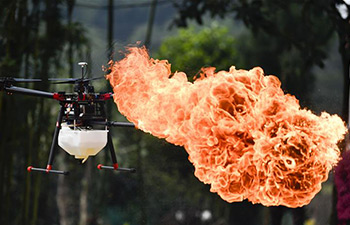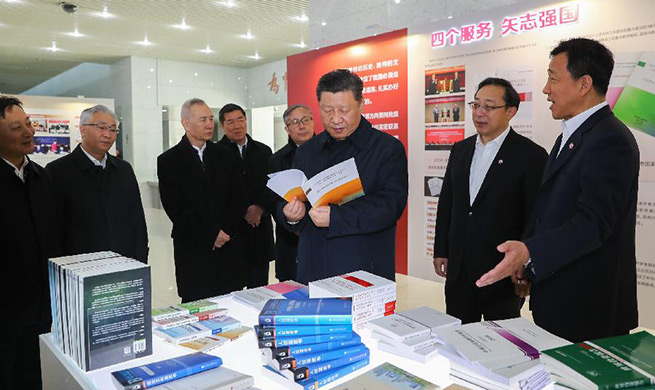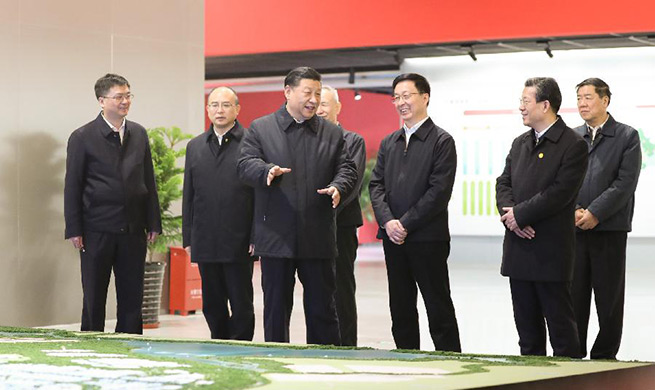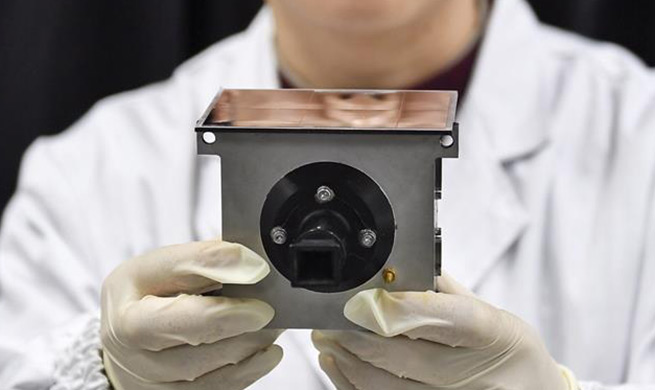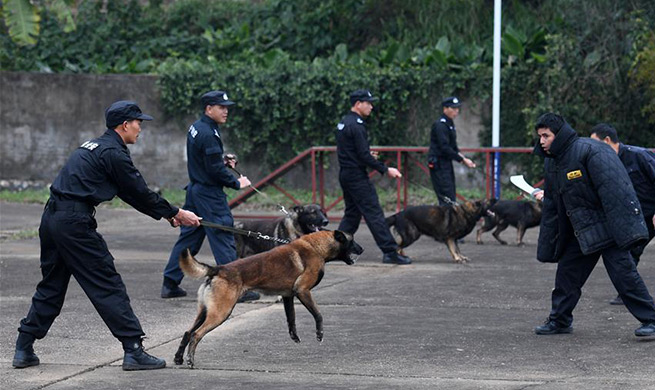ANKARA, Jan. 18 (Xinhua) -- Since the late 1970s when the United States exerted an arms embargo on Turkey, its defense industry has made giant strides and significantly reduced its foreign dependency.
"Today, Turkish defense firms export armored vehicles, air defense systems, rocket systems, simulators, coastal security vessels, and communication control systems," Turkish President Recep Tayyip Erdogan said this week.
The Turkish leader made the remarks during the ground-breaking ceremony of one of Turkey's biggest defense industry investment projects in recent years by BMC, one of the largest commercial vehicle producers in Turkey, in partnership with Qatar.
Erdogan also mentioned a 1.5 billion-U.S.-dollar ship export to Pakistan at the ceremony.
Last July, Turkey won a multibillion-dollar tender to supply four corvettes to the Pakistani Navy, in what has been dubbed as the largest export deal in the history of Turkey's defense industry.
Turkey and Pakistan, two traditionally close countries, also finalized a deal on the sale of 30 ATAK helicopters last year.
In addition, Turkey is negotiating the sale of eight to 10 ATAK helicopters to the Philippines, according to Filipino Defense Secretary Delfin Lorenzana.
Baykar Makina, a Turkish producer of assault drones, also won a contract in Ukraine recently to equip the Ukrainian army with six assault unmanned aerial vehicles.
The exports of the Turkish defense industry hit a record high of 2.04 billion dollars in 2018, up 17 percent from 2017, which was a progress not to be sneezed at.
After Turkey joined the U.S.-led NATO in 1952, it mainly depended on Washington for military equipment. The United States imposed a debilitating embargo on all arms sales to Turkey after invasion of northern Cyprus in 1974 in response to a coup of nationalist Greek Cypriots.
Turkey has since decided to develop its own defense industry, creating state companies such as Aselsan and some local enterprises.
According to Erdogan, Turkey's dependence on imported military hardware has been reduced from 80 percent to 35 percent in the last 16 years.
Experts say the current defense industry boom in Turkey is linked with the foreign and security policy of Erdogan, who chairs every executive committee of the Presidency of Defense Industries and closely follows all major projects.
"If Turkey is now emerging as a hard power in its immediate neighborhood through cross-border operations and establishing military bases in some of the regional countries like Qatar, its investment into an independent defense industry carries weight," Serkan Demirtas, a political analyst and journalist, told Xinhua.
According to Demirtas, Ismail Demir, head of the Presidency of Defense Industries, said the Turkish defense industry aims to be 100 percent independent by 2053 with an export capacity of 50 billion dollars.
Turkey's first indigenously built multipurpose amphibious assault ship, which can be configured as a light aircraft carrier, is expected to be launched in February, experts said.
However, the economic slowdown following the meltdown of the national currency last summer had an impact on the defense industry, as the economic situation has led defense engineers to move abroad, said Ilhami Ozcan Aygun, a deputy from the main opposition Republican People's Party.





